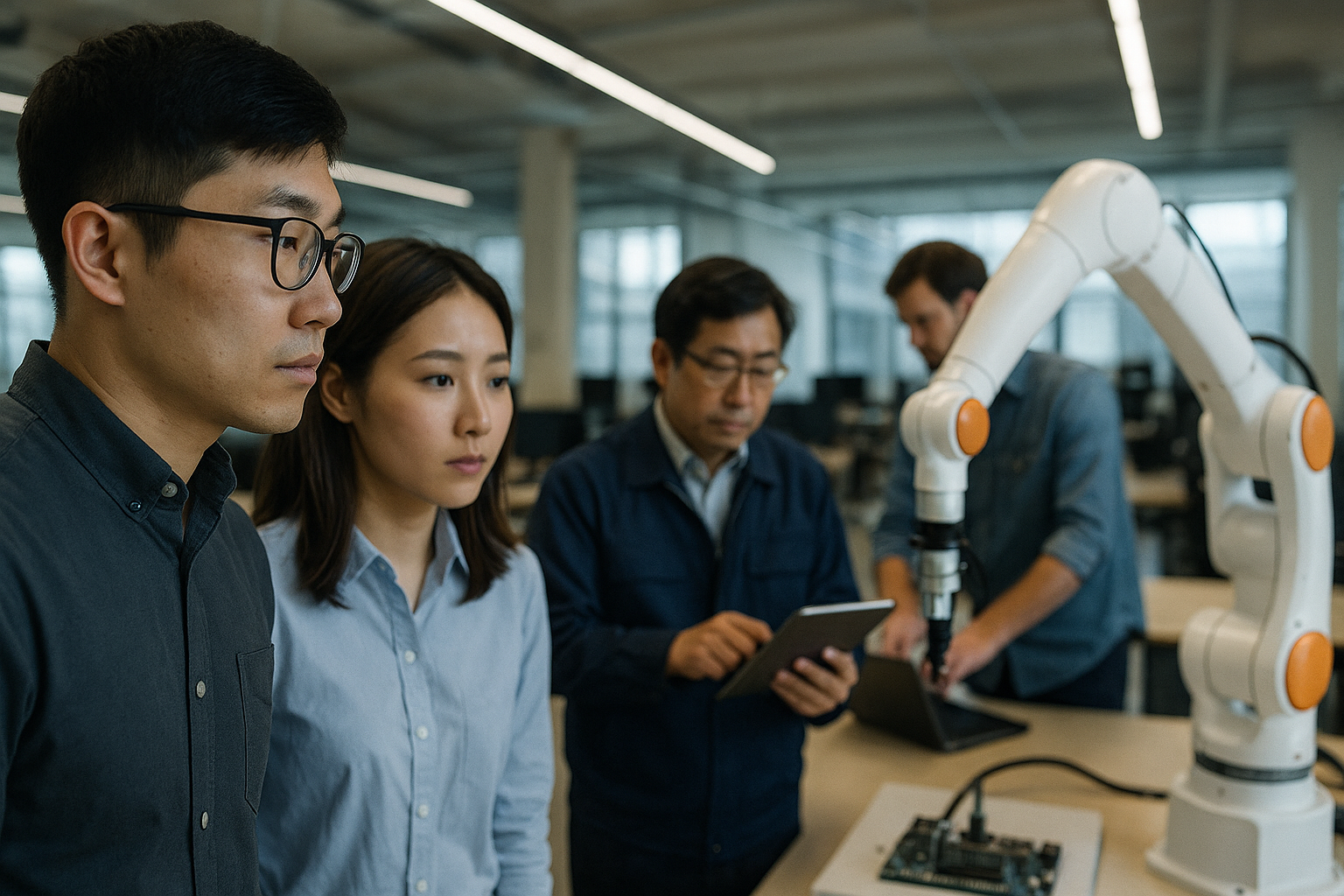The Human Side of Korea’s AI Boom: Jobs, Skills, and the Quest for Equality
The OECD–KDI–KEIS report on Artificial Intelligence and the Labour Market in Korea explores how AI is transforming jobs, skills, and inequality in one of the world’s most tech-driven economies. It urges a human-centred transition that couples innovation and productivity with inclusive education, fair adaptation, and ethical governance.

The report "Artificial Intelligence and the Labour Market in Korea," prepared by the OECD, Korea Development Institute (KDI), and the Korea Employment Information Service (KEIS), delivers an incisive look at how artificial intelligence is reshaping employment, skills, and economic inequality in one of the world's most technologically advanced nations. Korea's innovation ecosystem is flourishing, its corporations lead global AI applications in manufacturing, logistics, and digital services, but the report warns that its labour market is under immense strain. Automation, demographic shifts, and skill gaps are redefining what work means, creating both unprecedented opportunities and profound challenges for workers and policymakers alike.
Jobs Under Pressure and the Rise of New Occupations
AI is depicted as both a productivity driver and a disruptive force. Around 23 percent of Korean jobs face a high risk of automation, while another 33 percent are expected to undergo major task transformations rather than vanish entirely. This exposure exceeds the OECD average, reflecting Korea's reliance on routine-based manufacturing and clerical sectors. Yet the report stresses that the future is not one of mass unemployment, but rather task reconfiguration, machines taking over repetitive work while humans move into analytical, creative, and supervisory roles. AI is already transforming workplaces in industries such as finance, healthcare, and logistics, where algorithms now support data processing, diagnostics, and decision-making.
A Deepening Divide in Wages and Skills
A major concern highlighted is the growing polarisation of Korea's labour market. High-skilled professionals with strong STEM and ICT backgrounds are capturing the rewards of the AI revolution, while mid-level clerical and production roles are disappearing. Wage inequality has widened as a result, with older and less educated workers increasingly marginalized. The gender gap compounds the problem, women make up less than a third of employees in AI-related occupations and are heavily concentrated in jobs more vulnerable to automation. The report argues that without deliberate interventions, digitalisation could harden social divisions, creating an economy of "winners and left-behinds." It calls for inclusive education and retraining systems to ensure a fairer distribution of opportunities.
Skills, Education, and the Digital Learning Gap
The authors identify education and lifelong learning as the foundation for managing AI's labour impact. Although Korea's education system excels academically, it has been slow to embrace digital creativity and problem-solving. New reforms under the AI Education Strategy and Digital New Deal aim to teach coding, data analysis, and digital ethics from primary school onward, while programmes like K-Digital Training are equipping job seekers with market-ready AI skills. Yet participation remains concentrated among younger, college-educated workers, leaving older employees behind. The report calls for more flexible and modular learning pathways, stronger links between universities and industries, and better forecasting systems to anticipate emerging skill demands.
Balancing Innovation with Inclusion
AI's promise of higher productivity and competitiveness is evident among Korea's major firms, such as Samsung, Hyundai, Naver, and Kakao, which dominate the AI frontier. But small and medium-sized enterprises lag significantly, lacking both capital and digital know-how. This imbalance risks widening industrial inequality. The study urges the government to expand access to data platforms, cloud infrastructure, and financing for SMEs, alongside public-private partnerships that democratize technological benefits. Policy frameworks like the National AI Strategy (2019), Digital New Deal (2020), and K-Cloud Project have made bold progress toward building a world-class AI ecosystem, but gaps persist between innovation policy and labour-market protection. The report highlights that employment insurance, retraining, and safety nets still fail to cover many self-employed and non-standard worker groups, most vulnerable to automation shocks.
Toward a Human-Centred AI Transition
Ethical and social considerations are central to the report's conclusions. Korea's AI Ethics Charter establishes principles of fairness, transparency, and accountability, yet the study warns that these must be enforced through stronger oversight and public trust. Issues such as algorithmic bias, privacy, and workplace surveillance require vigilant regulation. Ultimately, the report envisions a human-centred AI transition, built on three pillars, empowering people through continuous learning, ensuring equitable adaptation for displaced workers, and governing technology ethically. Korea's challenge, it concludes, is not merely to compete in the AI race but to ensure that innovation enhances human potential rather than replaces it. With decisive action, the nation can set a global example of how to integrate technological ambition with social responsibility, a future where humans and intelligent machines thrive together.
- FIRST PUBLISHED IN:
- Devdiscourse
ALSO READ
-
OECD Warns of Downward Risk to Global Growth Forecasts
-
OECD Calls for Stronger Risk Management and Unified Control Systems in Finland
-
OECD TALIS 2024: NZ Teachers Lack Confidence in Core Teaching Skills, Govt Acts
-
Welfare-oriented economies outperform market-driven peers in OECD green growth race
-
Slovenia’s fragmented procurement needs reform, OECD pushes for collaboration drive









